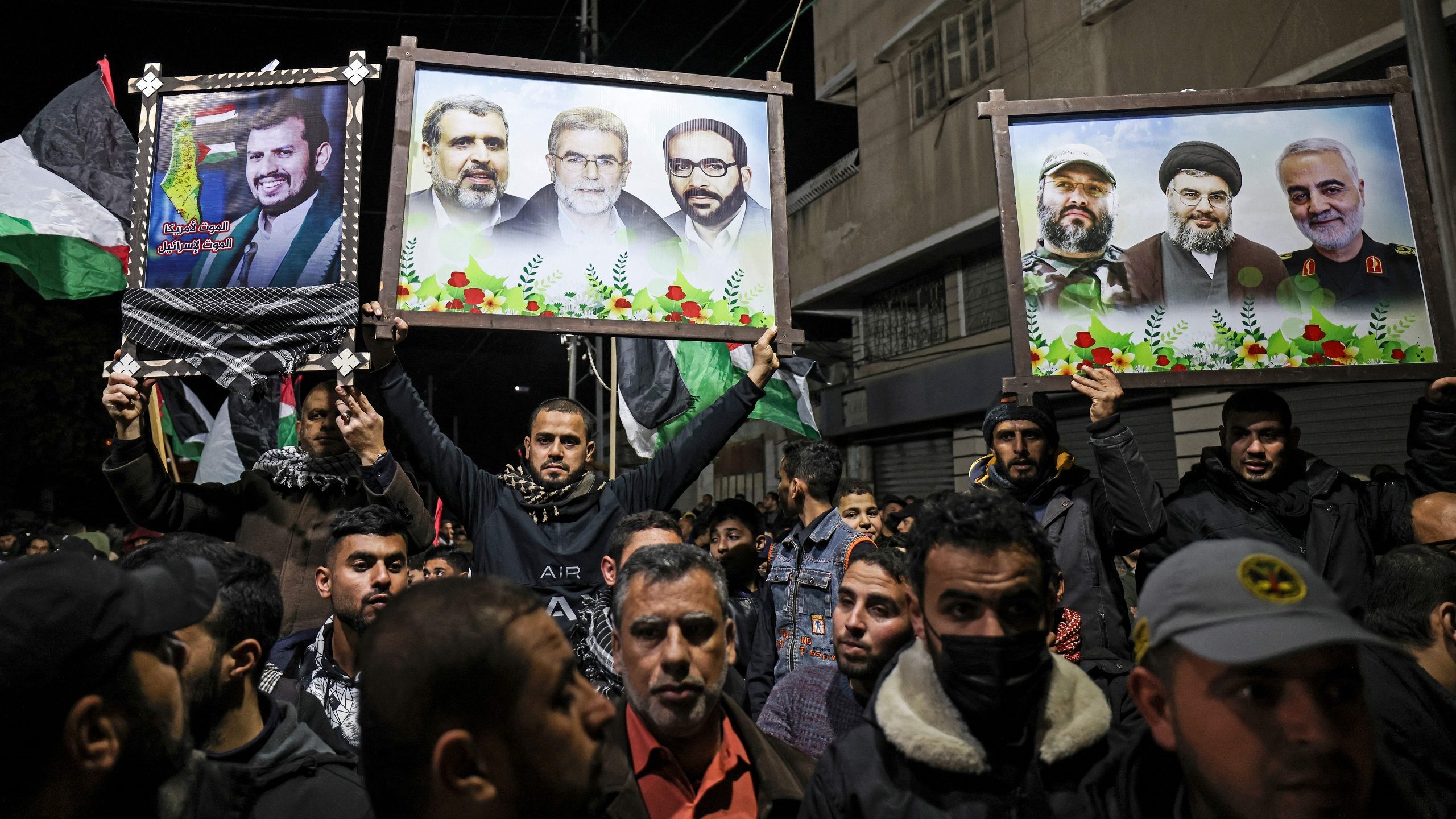Palestinians Are Divided Over the War in Yemen
Interfering in conflicts abroad ‘had a bad effect on us’ in the past, Fatah spokesman says
As the conflict in Yemen between the Iran-backed Houthi rebels and the Saudi-led coalition supported by the West rages into its eighth year, the world grows divided over its position on the bloody civil war.
The Palestinians are no different.
On Sunday, dozens of supporters of the Islamic Jihad group in Gaza demonstrated against the Saudi military campaign in Yemen, chanting “Death to the House of Saud” and waving posters of the Houthis’ leader.
The Middle East, as well as much of the international community, is split over the conflict. On the one hand, world powers and many regional countries want to see the rebels defeated and an end to what they say is Iran’s material support of them. All the same, the heart-wrenching images of slain women, old people and children coming out of the impoverished country place enormous pressure on the US and EU governments to stop arming Saudi Arabia and its ally the United Arab Emirates, and to force an end to the humanitarian crisis.
Palestinians are split over Yemen. While some including Islamic Jihad support the Houthis, others including Fatah say they should at least stay neutral. Hamas, which supported the Syrian revolution in its early days, suffered the consequences when the Assad regime emerged victorious; Hamas lost the support of the regime and was kicked out of Damascus, and its relations with Hizbullah and Iran are now strained.
On Sunday, Hamas and the other Islamists groups in Gaza stayed away from Islamic Jihad’s demonstration. Hamas, which governs the Gaza Strip, issued a statement “confirming its position not to interfere in the internal affairs of countries, and to distance itself from intra-regional conflicts.”
The statement says the Islamic Jihad demonstration did not reflect Hamas’ position and “expresses the opinion of its organizers only.”
However, Mahmoud al-Zahar, a Hamas leader, told Al-Mayadeen TV last Friday, “The Gulf countries will pay a price for their policy in Yemen, and for normalization.
“There is a similarity between the aggression against Yemen and the aggression of the occupation [Israel] against the Palestinians,” he says.
Munir al-Jaghoub, a Fatah spokesman, told The Media Line that interfering in conflicts abroad “had a bad effect on us” in the past.
“The position of the Palestinian leadership is consistent; not to be drawn into and interfere in the region’s crises and its internal affairs, and it has had the effect of protecting our people in the diaspora from these conflicts,” he says.
“We can’t afford to take sides; we’ve been through this before. We learned our lesson,” Jaghoub says.
Palestine Liberation Organization leader Yasser Arafat’s costly Gulf War choice in seemingly taking the side of Iraq angered the Gulf states and resulted in hundreds of thousands of Palestinians being expelled from Kuwait. Arafat’s call for regional diplomatic efforts to find a peaceful Arab solution to the crisis backfired and harmed the Palestinian cause for years to come.
Jaghoub says the decision to stay out of the region’s crises was made because the PA intends to “protect our diaspora from these conflicts.”
When ties sour, Gulf states tend to penalize the expats who live and work in their countries and terminate their residency and work permits.
At the outset of the Syrian crisis, Hamas made a similar decision, when leaders of the Palestinian Islamist movement turned publicly against their long-time ally President Bashar al-Assad, backing the thousands of Syrians who called for an end to his rule.
In recent months, Hizbullah, and Iran, have been reportedly attempting to mediate between Hamas and the Syrian government, with no breakthroughs so far.
Esmat Mansour, a Ramallah-based political analyst, told The Media Line the situation is “very sensitive” and “delicate.”
“We reject targeting Arab capitals and cities with missiles,” he says, but, adds, “We must take a principled and moral position and we can’t remain silent about any injustice committed against any of our Arab brothers.”
The “Arab division directly affects the Palestinian arena and the positions of the factions,” Mansour says.
The Saudi-led Sunni Arab coalition attack killed scores of people and wounded dozens more at a prison in northwestern Yemen on Friday night, according to the Doctors Without Borders aid organization.
This Monday, the Shiite Arab Houthi rebels fired two ballistic missiles toward the United Arab Emirates.
Last Monday, the rebels launched multiple drones laden with missiles toward the UAE capital Abu Dhabi more than 900 miles away, in a brazen attack that hit oil facilities and the airport, killing three people and wounding six others.
“I am for denouncing the war and the killing of civilians, but why come out publicly to support the Houthis against the Arabs? How does this serve the Palestinian people?” Jaghoub asks.


